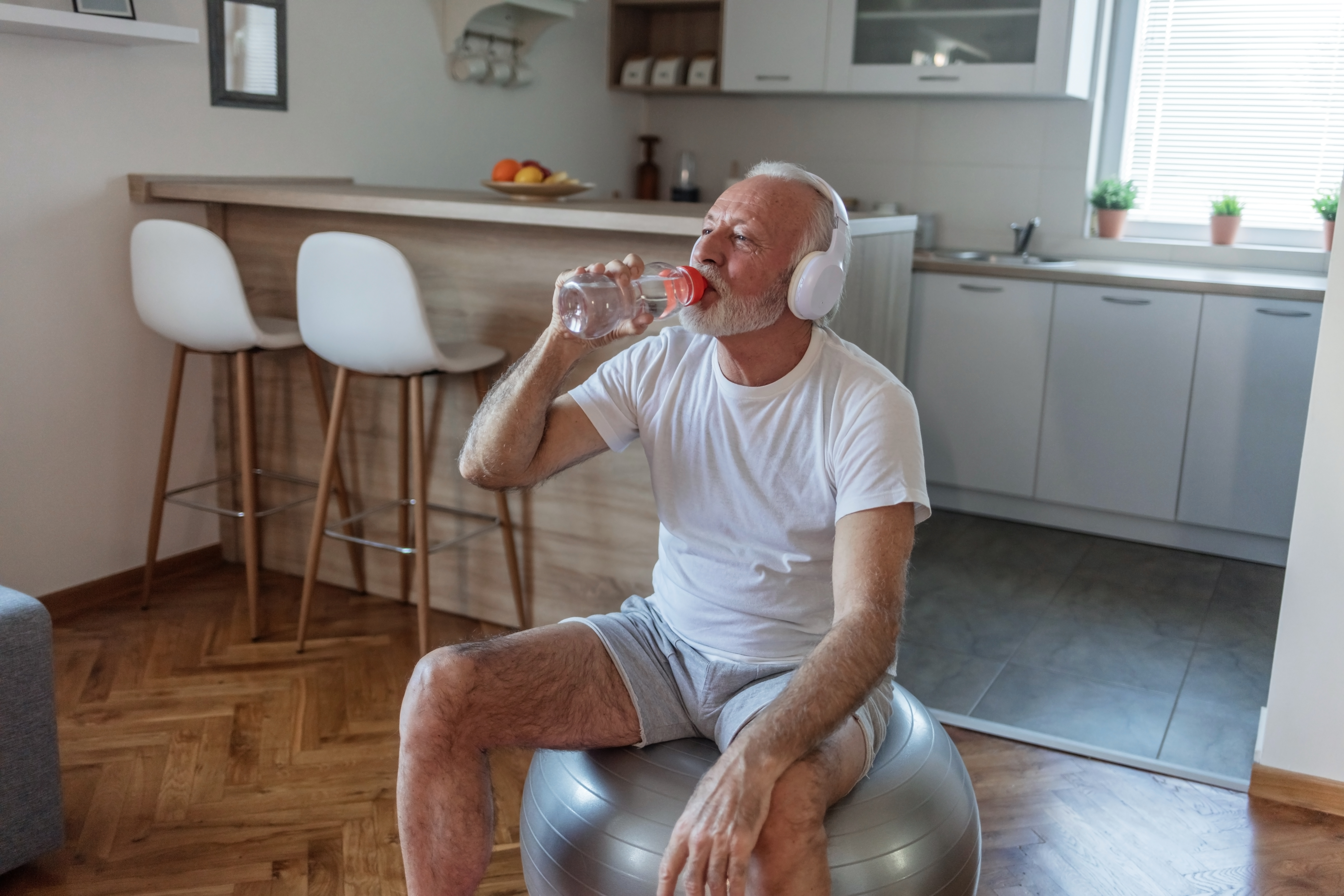As we age, we must drink enough water to stay hydrated. Dehydration can be especially harmful to seniors, causing various health issues. By staying properly hydrated, we can help prevent these problems and keep our bodies healthy.
According to CiviScience, almost half (47%) of American adults don’t consume the recommended amount of at least three 16-oz servings (equivalent to 2 glasses of water).
Dehydration: A Greater Threat to Seniors
Dehydration is a severe problem for anybody and can be hazardous for those with mobility issues or other health conditions. Our bodies become less efficient at regulating fluid levels as we age, making us more susceptible to dehydration. Some essential reasons seniors may be more vulnerable to certain risks.
1. Mobility Issues
Seniors often lead fewer active lifestyles compared to the general population. With aches, pains, injuries, and discomfort, moving around can be pretty challenging for them. Unfortunately, these mobility issues can make it difficult for many seniors to access a glass of water when needed. When this becomes a daily occurrence, it can lead to severe dehydration issues.
2. Diminished Kidney Function
As we age, our kidneys may not work well, which can cause a fluid imbalance and increase the risk of dehydration. If you're concerned about it, you must speak with your doctor and have your kidneys checked. Insufficient kidney function can worsen the problem and make dehydration more severe.
3. Feeling Thirsty
It is essential to take into account the sensation of thirst. Our bodies use hunger to prevent dehydration, but this signal weakens with age. Older people may not feel as thirsty as younger individuals, which elevates the possibility of dehydration.
4. Cognitive Difficulties
Hydration can be a challenge for individuals with dementia and Alzheimer's disease. This is because they may forget to drink enough water, even though their body may give off the sensation of thirst. Additionally, the impaired brain may not interpret these signals correctly or may not receive them at all.
5. Taking Medications
Seniors often take multiple medications. However, it's important to note that many pills can lead to dehydration. Talk to your doctor before starting a new drug, and ask about the risk of dehydration. While several medicines can cause hydration problems, diuretics are one of the biggest offenders.
Dehydration Symptoms in Seniors That You Shouldn't Ignore
As we discussed earlier, dehydration can be a severe concern for seniors. Staying hydrated at any age is important, but seniors may have a more challenging time regulating their fluid levels. Here are some signs to look out for to ensure that they stay properly hydrated.
- Tiredness or fatigue
- Dry mouth
- Muscle cramps
- Infrequent urination
- Dark-colored urine
- Dizziness
- Lack of tears
- Problems keeping fluids down
- Diarrhea or vomiting lasting longer than 24 hours
- Feeling overly tired for no apparent reason
- Confusion
- Fainting
- Trouble walking or moving around
It's essential to reach out to your doctor immediately if you're experiencing any of these symptoms. Dehydration can lead to serious health issues, such as urinary tract infections, kidney failure, seizures, heatstroke, and hypovolemic shock, if not addressed promptly.
Tips for Improving Hydration
Staying hydrated can be made easier with a few simple adjustments. Consider these helpful tips to maintain proper hydration:
1. Set Reminders
Staying hydrated by drinking enough water is essential for good health, but it can be challenging to remember to do so, regardless of age. One helpful strategy is to set reminders on your smartphone or use a timer to help you stay on track with your hydration goals. This way, you can get theyou'reght amount of water your body needs to function at its best.
2. Consider Your Diet
While water and fluids impact your hydration levels, your diet also plays a role. Try incorporating more foods with higher water content, such as watermelon, celery, and strawberries. Yogurt, soups, and broth are other hydration-promoting foods to consider.
3. Prepare Properly
Preparing yoIt'surself for situations where your hydration levels may be at risk is crucial. For instance, if you plan to work out or go outside in hot and humid weather, consuming eit'snough water is essential. Such situations can quickly lead to a drop in your hydration levels.
4. Focus on Healthy Fluids
Reducing your consumption of coffee, soda, and tea is important to enhance your hydration levels. These beverages have the potential to cause dehydration, so if you choose to indulge, be sure to balance it out with plenty of water.
Understand the Signs of Dehydration
Being conscious of the indications of dehydration is vital to avoid any unpleasant symptoms—seniors, in particular, face challenges in staying sufficiently hydrated. Educating yourself about dehydration and its prevention can reduce the possibility of encountering health complications.






